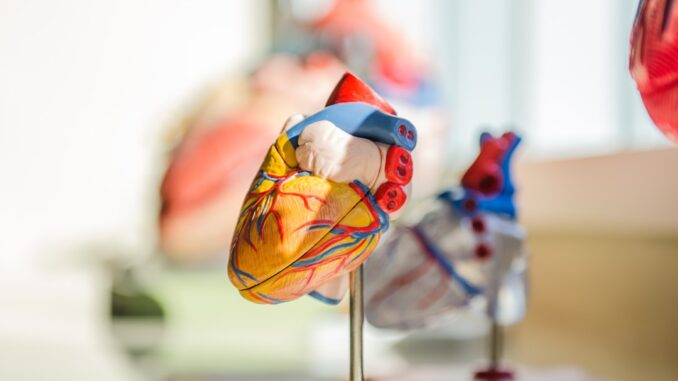
Summary
NHCS developed SENSE, an AI system that analyzes cardiac scans in minutes, predicting coronary artery disease. This advancement significantly speeds up diagnosis, potentially saving lives by enabling quicker intervention. SENSE is currently being piloted across three major Singaporean hospitals.
Main Story
AI-Powered Heart Disease Prediction: A Leap Forward in Cardiac Care
The National Heart Centre Singapore (NHCS) has unveiled SENSE (Singapore hEart lesioN analySEr), a groundbreaking AI system designed to revolutionize coronary artery disease (CAD) prediction. This innovative technology analyzes cardiac imaging scans, delivering risk assessments in mere minutes, a process that previously took hours. This rapid analysis has the potential to drastically improve patient outcomes by facilitating faster diagnosis and treatment. Currently, CAD accounts for nearly one-third of all cardiovascular-related deaths in Singapore, underscoring the critical need for early detection and intervention. SENSE is being piloted at NHCS, National University Hospital, and Tan Tock Seng Hospital, involving 300 patients, marking a significant step towards nationwide implementation.
SENSE: Transforming CAD Detection
SENSE utilizes sophisticated algorithms and machine learning to interpret cardiac scans, evaluating four key CAD indicators: coronary calcium scores, epicardial adipose tissue, coronary stenosis, and plaque. These parameters, identified through the NHCS APOLLO cardiac database, contribute to a comprehensive risk assessment. Preliminary results show impressive accuracy rates, ranging from 85% to 99% in controlled environments. The ongoing trials will provide crucial real-world data, further validating the system’s efficacy and paving the way for widespread adoption. While SENSE automates the analysis process, clinicians retain the final say in diagnosis and treatment decisions. This collaboration between AI and medical expertise ensures the responsible implementation of this powerful technology.
The CVS.AI Research Laboratory: Powering Innovation
The driving force behind SENSE is the CardioVascular Systems Imaging and Artificial Intelligence (CVS.AI) research laboratory at NHCS. Established in 2021, CVS.AI has significantly expanded its infrastructure, boasting a new, purpose-built facility equipped with state-of-the-art AI-powered machine learning software and high-performance Graphics Processing Units (GPUs). This enhanced infrastructure allows real-time processing of vast datasets, dramatically improving the accuracy of disease prediction models. SENSE leverages the extensive APOLLO database, comprising around three million heart images and data from approximately 5,000 patients across major heart centers in Singapore. This rich dataset has been instrumental in training and refining SENSE’s algorithms, enabling it to provide highly precise and personalized risk assessments.
The Broader Impact of AI in Healthcare
The development of SENSE exemplifies the transformative potential of AI in healthcare. Beyond CAD prediction, AI is rapidly changing various aspects of medicine, from diagnostics and treatment planning to drug discovery and administrative tasks. AI-powered systems are demonstrating remarkable accuracy in detecting diseases like cancer, often surpassing human capabilities. Moreover, AI can analyze vast amounts of patient data, identifying patterns and risk factors that might otherwise go unnoticed, leading to more proactive and preventative healthcare.
Looking Ahead: A Future of AI-Driven Healthcare
As AI technology continues to advance, its integration into healthcare promises to reshape the future of medicine. The development and implementation of tools like SENSE signify a paradigm shift toward more efficient, precise, and proactive healthcare systems. While challenges remain, the potential benefits of AI in healthcare are undeniable. From faster diagnoses and personalized treatments to streamlined administrative processes and accelerated drug development, AI is poised to revolutionize how we approach health and well-being, ultimately leading to better patient outcomes and a healthier future for all. As of today, June 1, 2025, the future of healthcare looks increasingly intertwined with the innovative capabilities of artificial intelligence.


The accuracy rates of 85% to 99% for SENSE are impressive. How do these figures compare to traditional methods of CAD risk assessment, and what is the margin of error for each?
That’s a great question! Traditional CAD risk assessments often rely on scoring systems and stress tests, which have varying degrees of sensitivity and specificity. The margin of error can be higher compared to AI-driven analysis like SENSE, which benefits from a more granular approach to data interpretation. Further studies will provide more clarity as SENSE is used more widely in practice.
Editor: MedTechNews.Uk
Thank you to our Sponsor Esdebe